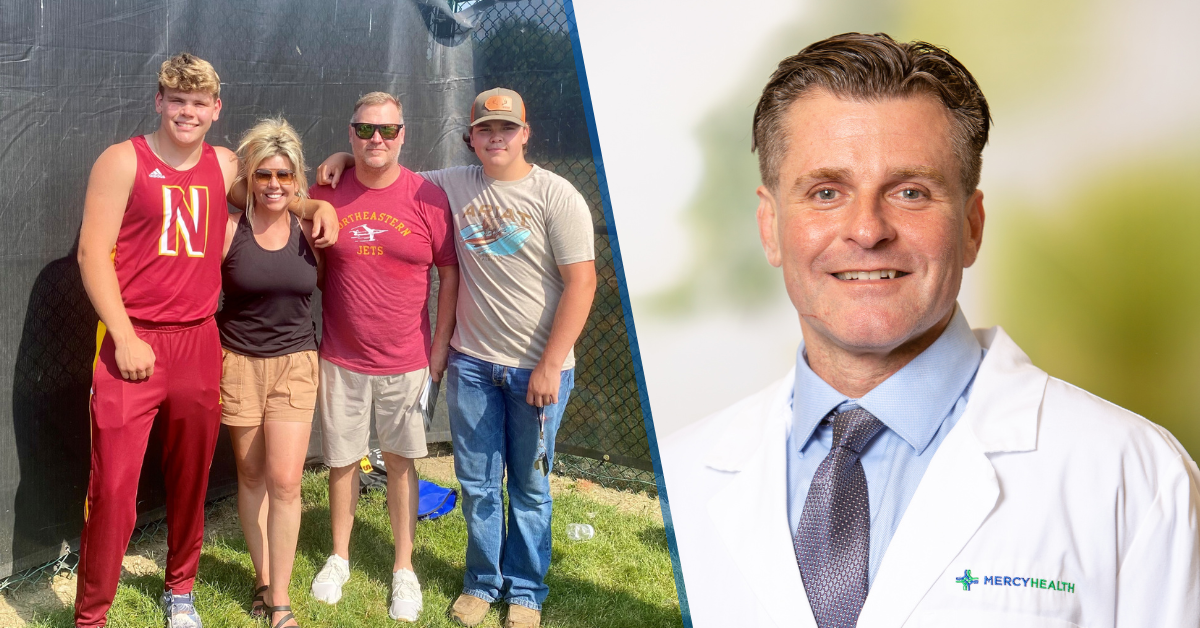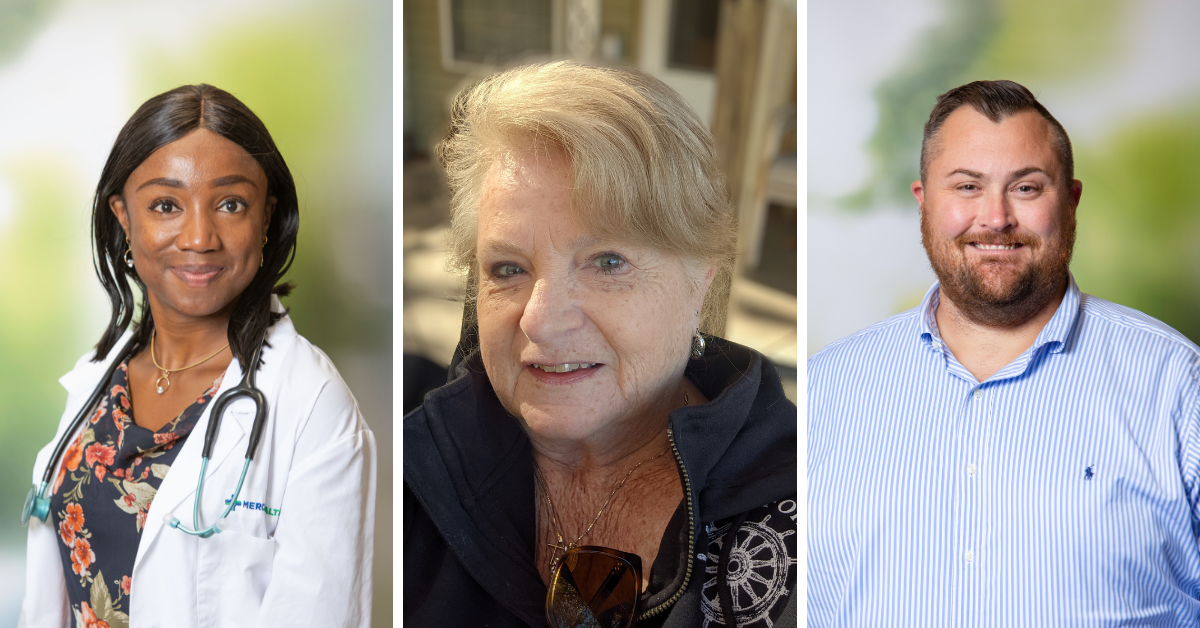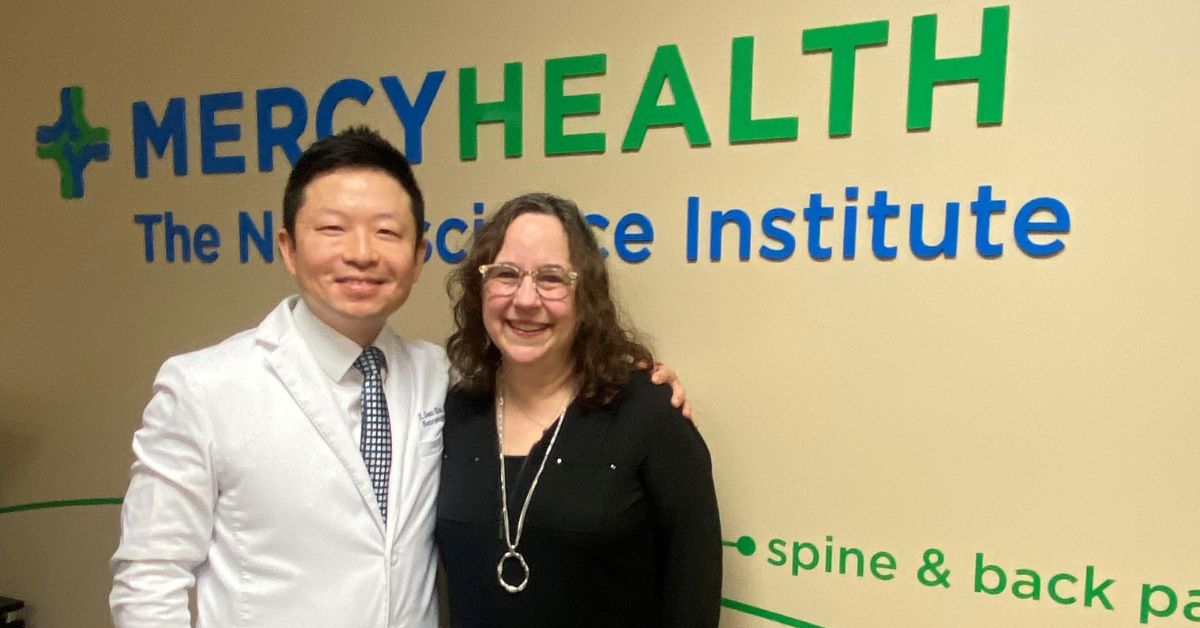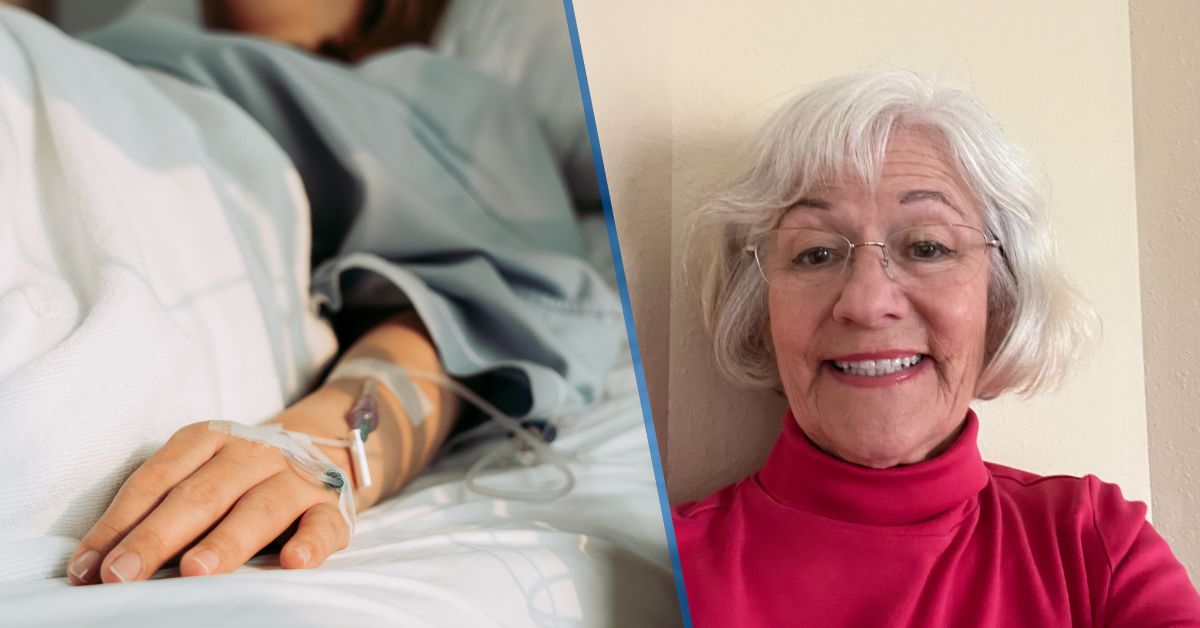A day that started like any other
In July of 2016, John Caldwell, a 47-year-old railroad engineer, reported to work as usual. But soon, John was experiencing head pressure, facial drooping and numbness on the left side of his body — all classic symptoms of a stroke in the early stages.
“I didn’t know it then, but they dispatched a stroke unit, thank God. I remember them CT-scanning me right in the parking lot and hearing different conversations between the tech and the doctor,” John said. “I heard him tell the tech to give the TPA drug and the next thing I know I’m in the trauma room at St. V’s.”
Once John got to Mercy Health St. Vincent Medical Center in Toledo, he was able to put a face to the voice he heard in the vehicle. The voice belonged to Dr. Sam Zaidat, Mercy Neuroscience and Stroke Medical Director. For John, the unbelievable part was discovering that Zaidat was the same one who ordered his treatment while he was in the Mobile Stroke Unit.
Made possible by the Mercy Health Foundation through the generous support of many donors, including Kingston Healthcare, HCF Management and Dorothy MacKenzie Price, the MSU has been operational since January of 2016. It represents a key element in Mercy Health’s continuing mission to provide the best possible care precisely when and where it’s needed most.
Shortening “door-to-needle” time with mobile stroke unit
No one ever wants to experience the symptoms of stroke, but Northwest Ohio residents who do can take heart in one key advantage. The Mercy Health’s Mobile Stroke Unit is one of only a few in the country that has this capability to ‘bring the ER door to the stroke patient.’
According to Mobile Stroke Unit Program Manager Julie Goins-Whitmore, the previous best case scenario treatment for a stroke was simply to “load and go” as quickly as possible in the attempt to get the patient to the hospital as fast as possible. However, with the Mobile Stroke Unit, potentially lifesaving medicine can be delivered to patients within seconds of its arrival.
“Not only are we a Mobile Stroke Unit, we are like a neuro ICU on wheels, equipped with technology that enables CT scans to be performed right on the spot,” Goins-Whitmore said. “Every minute you are having a stroke; millions of brain cells die. By evaluating, diagnosing and beginning treatment immediately, we’re able to bring service to a whole new level for our patients.”
For his part, Dr. Zaidat acknowledged that every second he saved likely made the difference.
“The faster we are able to administer clot-busting drugs, the more likely we are to not only increase the chances of a patient’s survival, but also the quality of his or her recovery,” Dr. Zaidat said. “The big measurement is the ‘door-to-needle’ time. Previously we thought in terms of providing treatment within 60 minutes of reaching the door at the ER. Now, we’re bringing the ER door to the patient, measuring time frames from the time of the first contact to initial treatment.”
Many more for the road
Since early 2016, Lucas County EMS has dispatched the Mobile Stroke Unit well over 300 times, often joining local fire department personnel and traditional paramedics on emergency calls throughout Northwest Ohio. Somewhat surprisingly, Goins-Whitmore reports that the work has involved much more than just stroke cases.
“We thought we’d only see stroke patients, but since we went live with the program, we’re treating a whole host of neuro problems, including first-time seizure patients and complex migraine cases,” Julie said. “The big thing is we just want to say how grateful we are to the Mercy Health Foundation for the donation and for believing in our program. This really is what we were meant to do.”
John Caldwell echoed those sentiments, saying that he feels he owes his life to the MSU and the medical professionals who staff it.
“My goal was to get better and get back to my job of raising my four boys. Between the people on that stroke unit and back at the hospital, everybody worked together like a ballet to help me make that happen,” he said. “I couldn’t have done it without them. Even on my worst days, they make me smile.”
The idea that someday we might experience symptoms of having a stroke isn’t something most of us think about very often. However, knowing this top treatment is available for you and your loved ones can help make you as prepared as possible.
If you want to talk to a physician about the signs or symptoms of a stroke, or other health concerns, the Mercy Health team is here for you. Call 513-952-5000 or visit mercy.com to make an appointment today, or learn more about strokes here.







1 Comment
Post a CommentJames Lake
Hello. My name is Jim Lake. On April 1, 2019 I suffered a stroke. The St Vincent Mobile Stroke Unit was sent. They did a CT scan right in my driveway and gave me TPA soon after. Upon arrival at St V,s they did a clot removal that was successful. When they removed the clot it was like somebody turned a light switch on. It’s the best way I can describe it. Everything came back to me like the stroke had never happened. I thank God every day since for the excellent care I received at St V,s. My MRI after the clot removal showed NO stroke. Truly amazing! I have no deficit and have been cleared to return to my normal life. Everything worked to my benefit starting with my wife being there and aware of what was happening. She was quick to call 9-1-1. I would like to thank all the doctors, nurses, and the medical staff for what they did for me. Thanks also to the mobile stroke unit staff for their excellent work. Thanks to the Lake Township Police for their work also. I know the results would have been different if not for these good people and all the resources that were used to assist in my care. I can’t thank them enough. We’re very fortunate to have this level of care in Toledo.